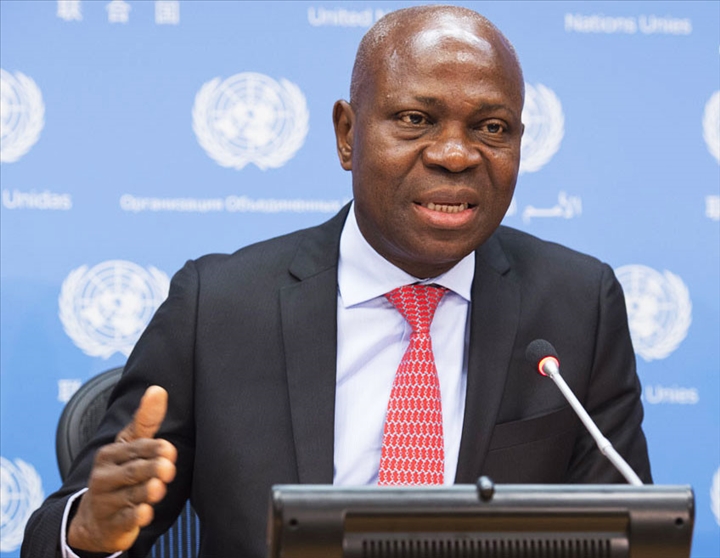Diplomatie
346e session du CA de l’OIT: Nous réussirons à rendre le monde meilleur, nous ne laisserons personne sur le banc du désespoir (G. F. Hougbo, patron de l’OIT)
Publié le mercredi 2 novembre 2022 | aLome.com

© Autre presse par ONU
Gilbert Fossoun Houngbo, ex Premier ministre togolais, élu ce 25 mars à Genève DG de l`OIT. Genève, le 25 mars 2022. Gilbert Fossoun Houngbo, ex Premier ministre togolais, élu DG de l`OIT. Houngbo a obtenu 30 votes sur 56, devant la Française Muriel Pénicaud qui a récolté 23 votes. G. Houngbo va succéder au Britannique Guy Ryder et sera le premier Africain à diriger l`OIT à partir d`octobre 2022. |



